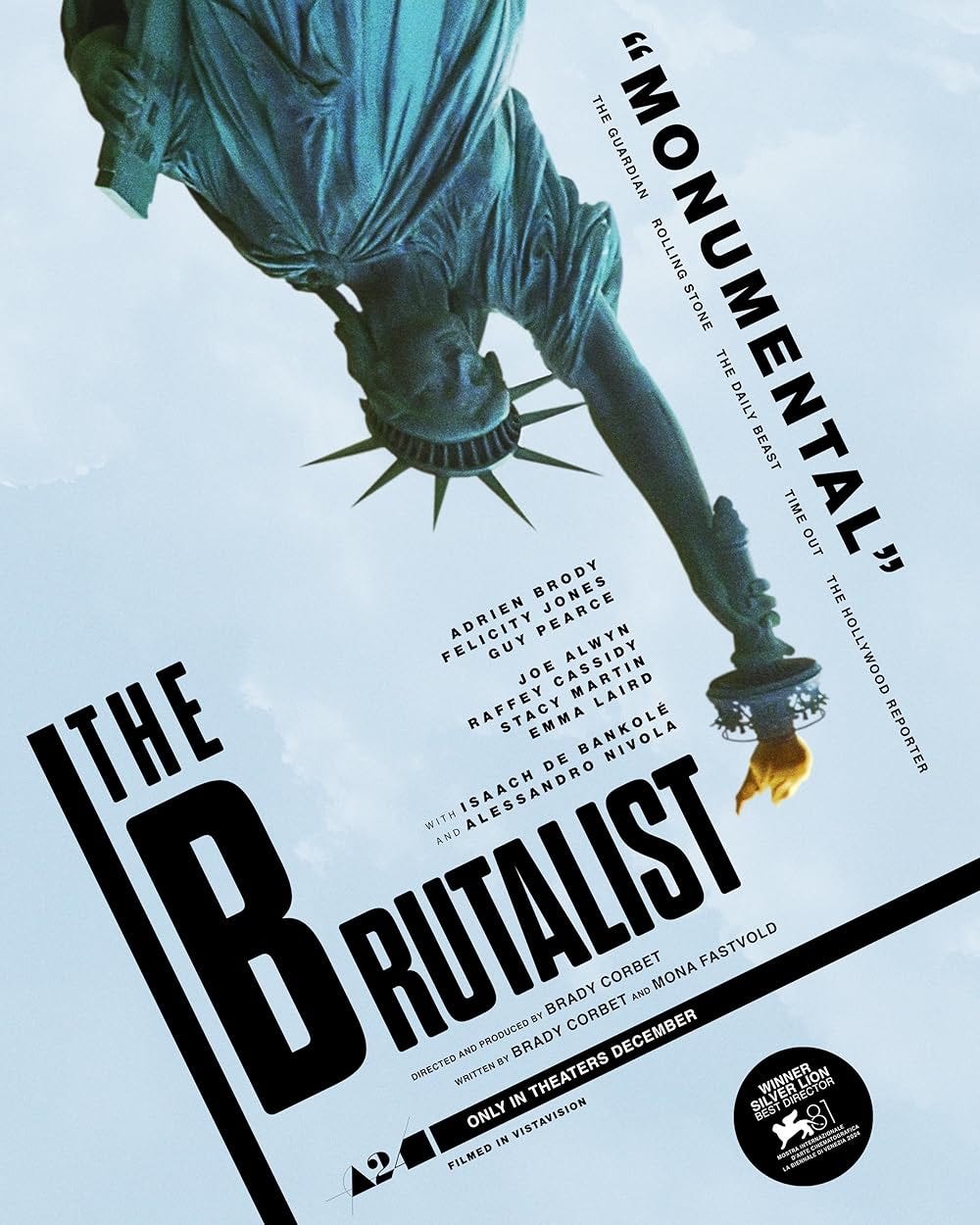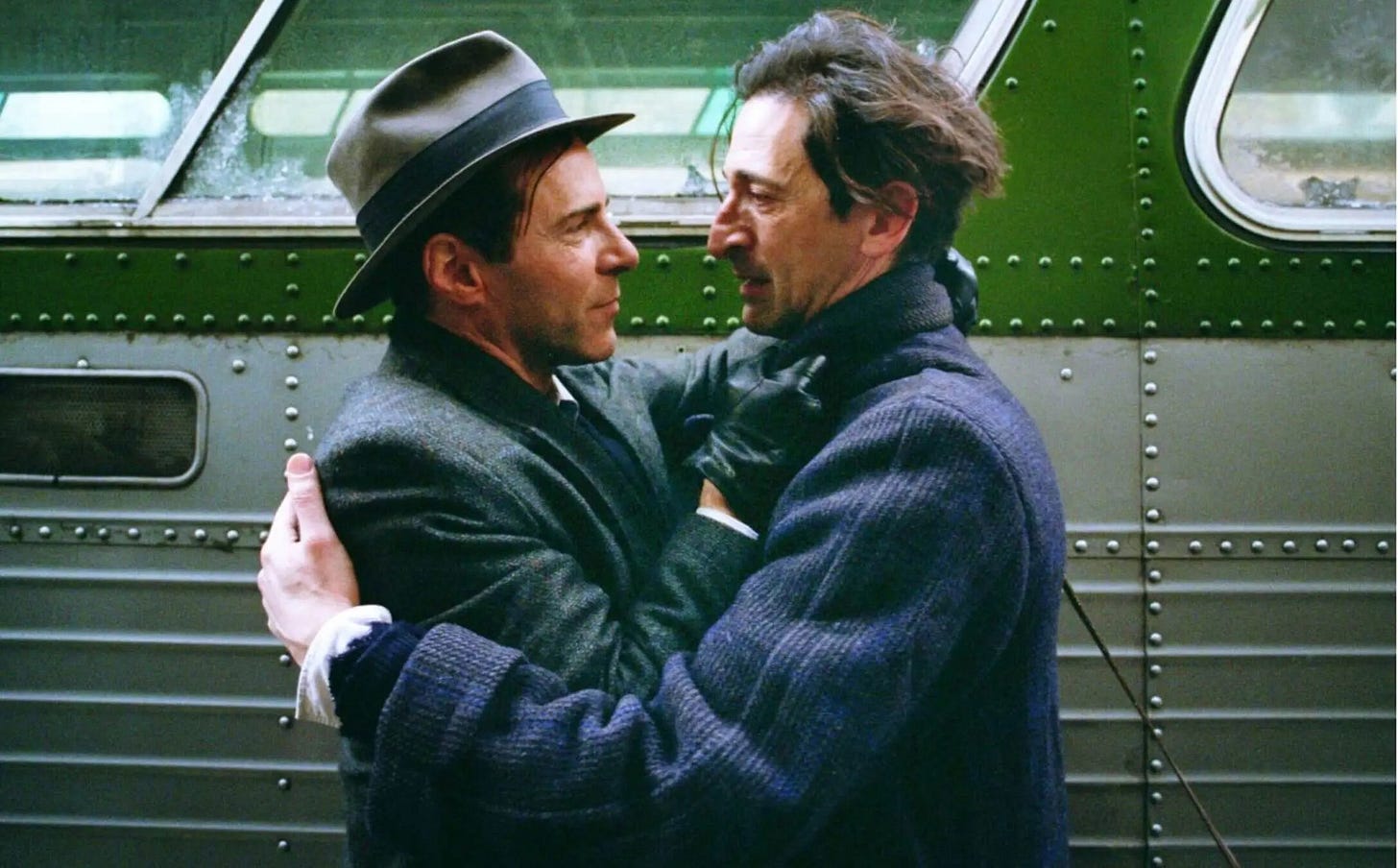There's something perfectly American about taking the single greatest atrocity in human history and turning it into a real estate development opportunity.
If you want to understand everything wrong with contemporary American culture, look no further than Brady Corbet's "The Brutalist," a film that manages to be both heavy-handed and somehow still not heavy-handed enough. The movie follows László Tóth (Adrien Brody), a Hungarian architect and Holocaust survivor who arrives in America only to discover that he left the concentration camps….for another brutalizing prison system - the American Dream.
Tóth, fresh off the boat at Ellis Island with a nasty morphine habit and haunted memories, finds himself in Philadelphia, that most American of cities, designing furniture for his assimilated cousin's store. It's here we get our first taste of the film's fascination with the aesthetics of compromise. The cousin has traded his Jewish identity for a Catholic persona that's as hollow as the mass-produced furniture he sells. As Laszlo quips: “it says ‘Miller & Sons’ on the door but there is no Miller and no sons”. The American dream, it seems, requires a kind of spiritual self-lobotomy.
Enter Van Buren (Guy Pearce, channeling the WASP-y menace of American capitalism), an industrialist who commissions Tóth to build a "community center" - that beloved euphemism of liberal do-gooderism, in



